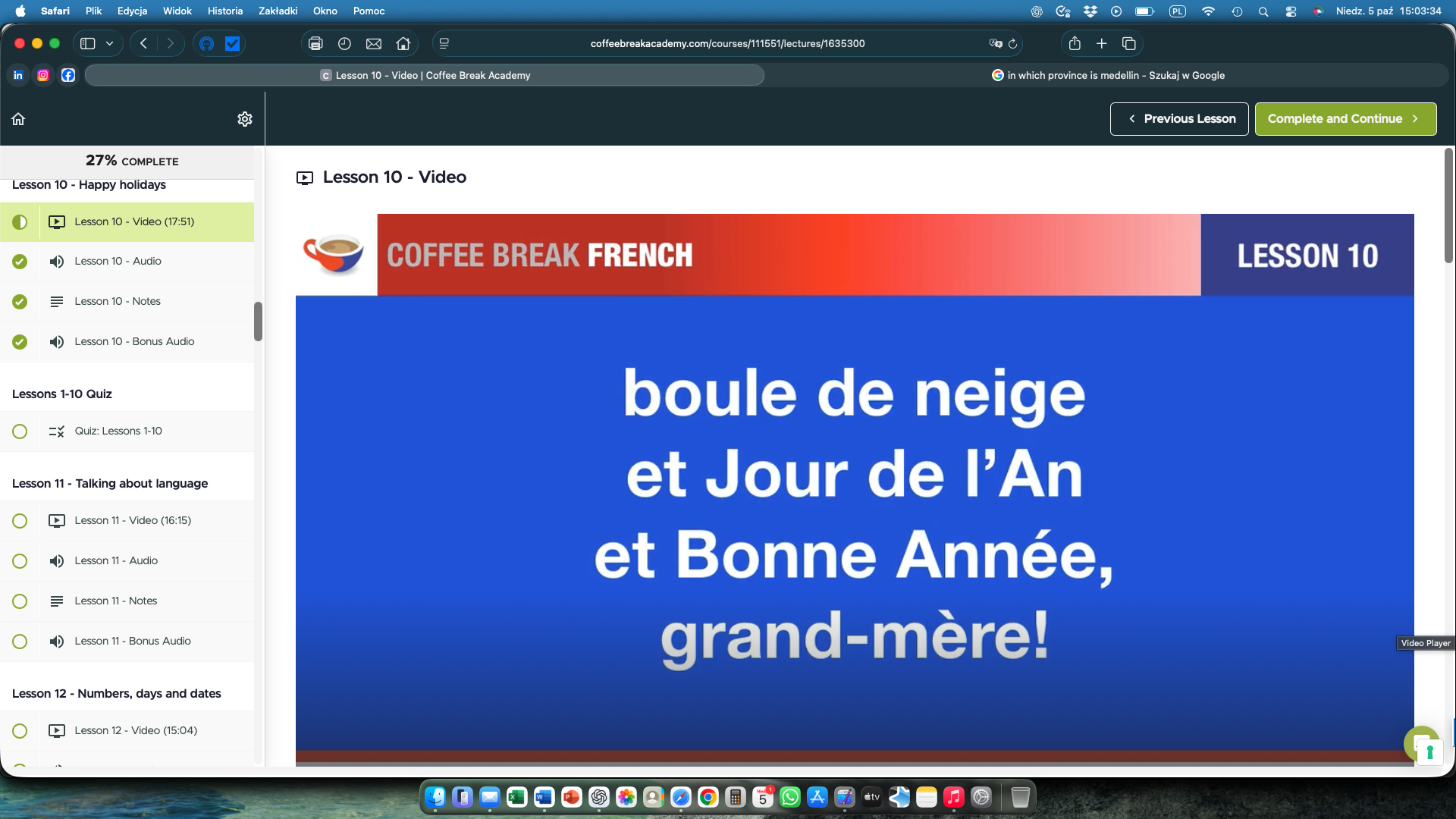The Music I Can’t Quite Hear — And Still Try to Sing

Learning French, Caracas, Venezuela, October 2025
The Music I Can’t Quite Hear — And Still Try to Sing
(On Language, Age, and the Joy of Trying)
Lately, I’ve begun learning French. Again.
I say “again” because like many things in life, it’s not the first time I’ve tried — only this time, I’m older, a little more patient, and perhaps a little more forgiving with myself.
French is proving difficult. Not because of its verbs or genders, or even the grammar that sneaks up on you from behind elegant turns of phrase. No — the real challenge is the sound. I’ve always been partially deaf, and now, in my fifties, my ears have grown no more cooperative. French is all breath and nuance, soft corners and hidden consonants. Whatever I try to say comes out heavy with a Polish accent, my vowels shaped by a lifetime of Slavic rhythm. I suspect it will always sound like that — and that’s all right.
This isn’t my first language adventure. Years ago, in Angola, I began learning Portuguese — out of necessity, at first. The language came wrapped in dust, in laughter, in late-night conversations and crowded markets. Later, in Mozambique, it deepened. I grew more confident. It became a part of my working life, my friendships, even my dreams.
Then came Spanish, which I picked up in anticipation of my posting to Panama. I studied hard, and this time, I learned it properly. For a while, my Portuguese and Spanish managed to live peacefully side by side. But then came Latin America in full — Venezuela, Colombia, conversations that flowed too fast — and now, like many in this region, I speak Portuñol. Portuguese with a Spanish heart. Spanish with Portuguese bones. A beautiful mess.
Along the way, there were other languages too. Russian, which fascinated me with its logic and weight. Danish, which I encountered unexpectedly during my training years in Denmark. Danish always felt like a language spoken from the back of the throat, half-swallowed by the North Sea winds — and yet it became familiar in its own strange way.
None of these languages came easily. Some arrived out of duty, others through love, and a few simply by accident. But each of them left something behind — a way of seeing, of listening, of connecting.
Now, as I wrestle with French pronunciation — the subtle u, the vanishing r, the nasal vowels that float just out of reach — I realise it’s no longer about fluency. It’s about presence. About keeping part of myself curious and alive. About accepting the limits of my hearing, my accent, my age — and still showing up.
Sometimes, I close the book and just listen. To a podcast I barely understand, to a passing conversation in a café, to my own voice trying to mimic a sound that doesn’t quite land. It’s humbling. And strangely beautiful.
We don’t always need to master a language to let it change us.
